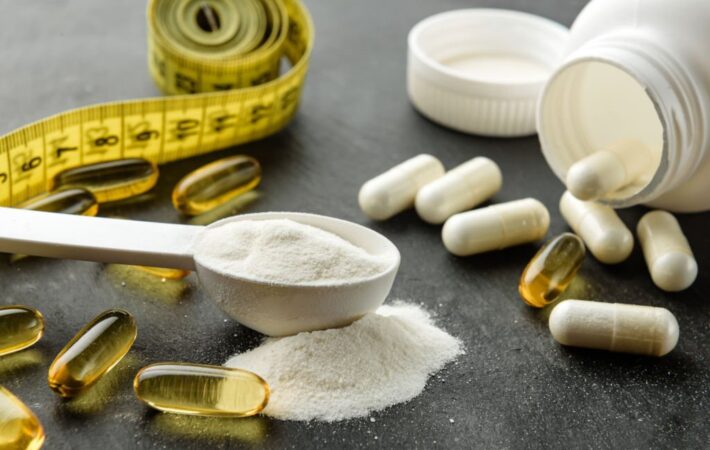Creatine is an organic acid naturally occurring in the body that supplies energy to muscle cells for short bursts of energy (as required in lifting weights) via creatine phosphate replenishment of ATP. Scientific studies have shown that creatine supplementation can increase the consumer’s strength, energy during performance, muscle mass, and recovery times after exercise. In addition, recent studies have also shown that creatine improves brain function. and reduces mental fatigue.
Some studies have suggested that consumption of creatine with protein and carbohydrates can have a greater effect than creatine combined with either protein or carbohydrates alone.
While generally considered safe, long-term or excessive consumption of creatine may have an adverse effect on the kidneys, liver, or heart and should be avoided if any pre-existing conditions affecting these organs exist.
Creatine is found naturally in some of the foods we eat whilst our body synthesizes and stores it. We use creatine to re-synthesize ATP (adenosine tri-phosphate) which put into layman’s terms means it helps us to use energy. It has been proven time and time again through many studies that by supplementing with creatine we are able to increase our creatine stores which could increase potential for improved athletic performance. (One extra rep, one second faster etc)
Having said this, it is important to know that creatine like all other supplements, can only increase potential for improved performance. It won’t make you any leaner, bigger, faster or stronger over night and as always, you may find that your diet is sufficient. This one is down to personal preference and just be careful to avoid the creatine supplements packed with sugar. Look for pure creatine monohydrate and add it into your protein shakes.







Leave a comment
Your email address will not be published. Required fields are marked *